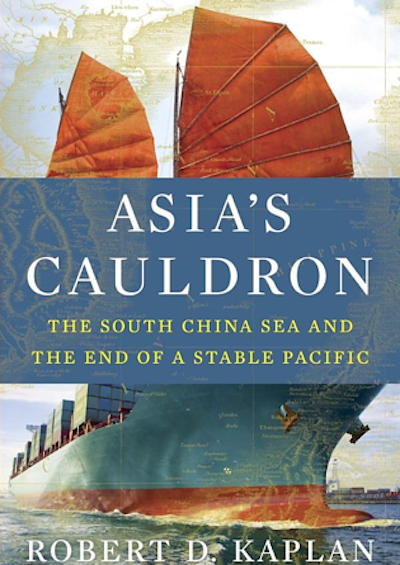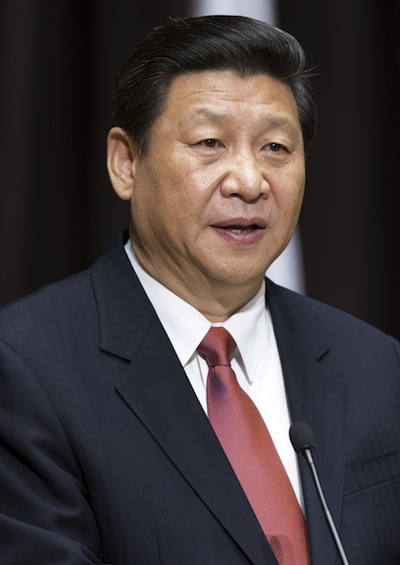Geopolitics at a Beijing Teahouse
Different worldviews informed by different geographical points of reference.
April 1, 2014

I am situated by a frozen lake, with gray pagodas and upward-curved roofs in the distance visible through the Beijing smog. There is the sickly sweet smell of coal burning.
I walk inside a traditional tea house, filled with porcelain, rice paper paintings, lime wood furniture and a massive red Turkish carpet. In other words, I am in a world of elegant and traditional aesthetics: a world with which sophisticated global elites are comfortable.
This is China as seen through the pages of an expensive coffee table book. My companions are members of an internationally renowned foreign policy institute in Beijing. The atmosphere is convivial.
We talk to each other across a geopolitical divide, but actually less so across a cultural one, since we are all similarly educated, all frequently visit each other’s countries and all consequently seek out compromise.
The get-together reminds me of how richly developed U.S.-Chinese relations are. Millions of American and Chinese have visited each other’s countries, tens of thousands of American businessmen pass through Beijing and Shanghai. Chinese political elites send their children to be educated at U.S. universities.
Beyond containment
This is not the Cold War between the United States and the Soviet Union, when I was a lonely American in Eastern European capitals. “Containment” is a word from a previous era, one that simply does not fit the American security approach to China, I tell myself.
But that evening, I am somewhere else in the Chinese capital. Rather than in a realm of quite elegance, I am now in a loud and tacky new hotel under sharp and glaring lights. There is a lot of fake gold and plastic.
I eat dinner with two members of a Communist Party foreign policy think tank. They are badly dressed and speak through an interpreter. They tell me that the Japanese national character has not changed since Pearl Harbor. They defend the nine-dashed line which asserts China’s claim to virtually the entire South China Sea.
The two men claim the right for China’s navy to protect its sea lines of communication across the Indian Ocean to the Middle East. The Vietnamese are unreasonable, they tell me.
They warm up to me only after I provide a short disquisition about how much I am aware of the territorial violations inflicted upon China by the West and Japan in the late 19th and early 20th centuries.
Yes, here I could be back in the Eastern Europe of the Cold War era.
Hegemony vs. harmony
As different is the U.S. relationship with China from the Cold War one with the Soviet Union, the fact remains that China and the United States are two great powers with competing interests in the Western Pacific.
The experts one meets at Beijing’s universities and institutes seem reassuringly flexible – members, as they are, of the global elite. But they are not in power – and those that are in power are less flexible.
While Beijing is rich in differences of opinion, as a visiting American one is still inundated with the line: while China only defends, the United States conquers. The South China Sea is the nub of the issue.
Hardliners and soft liners alike in Beijing see the South China Sea as a domestic issue, as a blue water extension of China’s territoriality. What shines through in this nervous assertiveness is just how deeply the pain has been internalized that China suffered at the hands of Western powers in modern time.
One night at a seminar I conducted for Chinese students, one shy, quivering young man blurted out: “Why does the United States meet our harmony and benevolence with hegemony? U.S. hegemony will lead to chaos in the face of China’s rise!”
Keeping the peace
This is vaguely similar to a Middle Kingdom mentality, in which China must defend itself against barbarians. Indeed, the South China Sea and its environs are China’s near-abroad.
But because the United States has come here from half-a-world away in order to seek continued influence in the South China Sea, it is demonstrably hegemonic. Likewise in the Indian Ocean, where China has legitimate commercial and geopolitical interests, while U.S. interests, again, are cast as merely hegemonic.
The United States, so the reasoning in Beijing goes, “attempts to keep Asia under its thumb and arrogantly throws its massive power projection capacity around.” Because Washington is seen as the “agitator” of South China Sea disputes, it is the United States, not China, that needs to be “deterred.”
After all, for many centuries China dominated a tribute system based on Confucian values that defined international relations in East Asia – and resulted in more harmony and less wars than the balance of power system in Europe. With that in mind, the West and the United States have nothing to teach China with regard to keeping the peace.
These are different world views informed by different geographical points of reference. They may have no ultimate resolution.
Coalition of the small countries
Thus, we are back to containment, the wrong word that unfortunately harbors a great truth: that because China is geographically fundamental to Asia, its military and economic power must be hedged against to preserve the independence of smaller states in Asia which are U. S. allies.
And that, in plain English, is a form of containment. A confident, business-like official at the Foreign Ministry in Beijing understood completely the dilemma, when he half-warned me: “Don’t let these small countries (Vietnam, the Philippines…) manipulate you.”
China understands power, and thus it understands the power of the United States. But it will not tolerate a coalition of smaller powers allied with the United States against it.
As to the South China Sea, sophisticated people in government and in the foreign and defense policy institutes here recognize that there must be some compromise down the road. But for that to happen, they need a political strategy to sell such a compromise to a domestic audience, which harbors deep reservoirs of nationalism.
Nationalism through democracy
It may be, in fact, that the nationalism on display among the two Communist party members I met at the hotel was a low-calorie version of what lies in store for China if the party itself weakens or fractures in the face of an unruly process of democratization and socio-economic upheaval. This process could be aggravated by an over-heated, debt-ridden domestic economy.
No one can predict the future, but the early phases of transition to democracy often bring nationalism to the surface.
The idea that China will suddenly be less nationalistic if it were only to become less autocratic has relatively few historical precedents. The current crop of dull, technocratic and collegial party leaders in Beijing may constitute the most reasonable regime in the field of foreign policy that China may have for some time to come.
Editor’s note: This essay is adapted from “Asia’s Cauldron: The South China Sea and the End to a Stable Pacific” (Random House, 2014) and is reprinted by arrangement with the author and publisher.
Takeaways
Read previous

Is China’s One-Party Rule Undemocratic?
April 1, 2014
